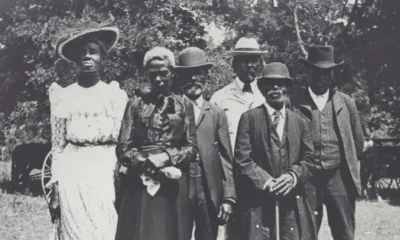Alien Enemies Act
Trump’s Open Defiance in Deportation Case Highlights Deepening Divide with Judges

WASHINGTON — A federal judge in Maryland condemned the Trump administration’s lack of compliance regarding the return of a wrongly deported individual. U.S. District Judge Stephanie Gallagher criticized the Department of Homeland Security (DHS) for its inadequate response to her earlier order concerning the return of Cristian, a man sent to a notorious mega-prison in El Salvador.
Gallagher, appointed by President Donald Trump in 2018, stated that the administration’s response amounted to an acknowledgment of inaction. She expressed frustration over the insufficient information provided about Cristian’s current status in El Salvador.
This ruling is part of a broader pattern where federal judges have penalized the Trump administration for disregarding court orders related to immigration. Gallagher highlighted concerns over due process violations amid the government’s aggressive deportation policies.
The White House and DHS have defended their authority to execute immigration removals, often criticizing judges for obstructing their agenda. Trump, in a recent Oval Office statement, lamented that judges are hindering rapid deportations, asserting the need for swift action.
Cristian’s case stems from a judicial reprimand issued by U.S. District Judge James E. Boasberg, who previously ordered a halt to the deportations of certain individuals under the 1798 Alien Enemies Act. Despite this order, the administration deported approximately 300 men to El Salvador shortly thereafter.
Among those deported was Kilmar Abrego Garcia, who has a court-sanctioned protection from deportation due to fears of gang violence. Cristian, originally an unaccompanied minor, is also protected under a class action lawsuit that prohibits his removal while his asylum application is pending.
Judge Gallagher expressed frustration with the government’s claim of being powerless in negotiating Cristian’s release from Salvadoran custody, demanding more concrete actions to facilitate his return.
In another significant ruling, Judge Paula Xinis reaffirmed that the Trump administration had made no tangible progress in returning Abrego Garcia despite acknowledging his wrongful deportation. He currently remains imprisoned in El Salvador, contrary to a Supreme Court order mandating his return.
Other judges across the country have noted similar trends of defiance from the administration. A Massachusetts judge recently ruled that the Trump administration bypassed due process in deporting individuals to unsafe countries without adequate notice.
As federal judges continue to challenge the administration’s immigration policies, officials argue that judges are encroaching on the executive branch’s foreign policy prerogatives. Trump has criticized judges he perceives as politically biased, suggesting they undermine national immigration priorities.
Despite the administration’s claims, the legal battles surrounding deportation decisions remain ongoing. The Trump administration has publicly stated that Abrego Garcia will not return, citing unverified allegations of gang affiliations. Meanwhile, Trump acknowledged his capability to facilitate Garcia’s return but stated he would not do so due to these claims.
In Gallagher’s latest judgment, she reiterated the need for the administration to work towards Cristian’s return, emphasizing the necessity of due process as outlined in a previous settlement agreement. She has granted officials until Monday to address their noncompliance with her orders.


















